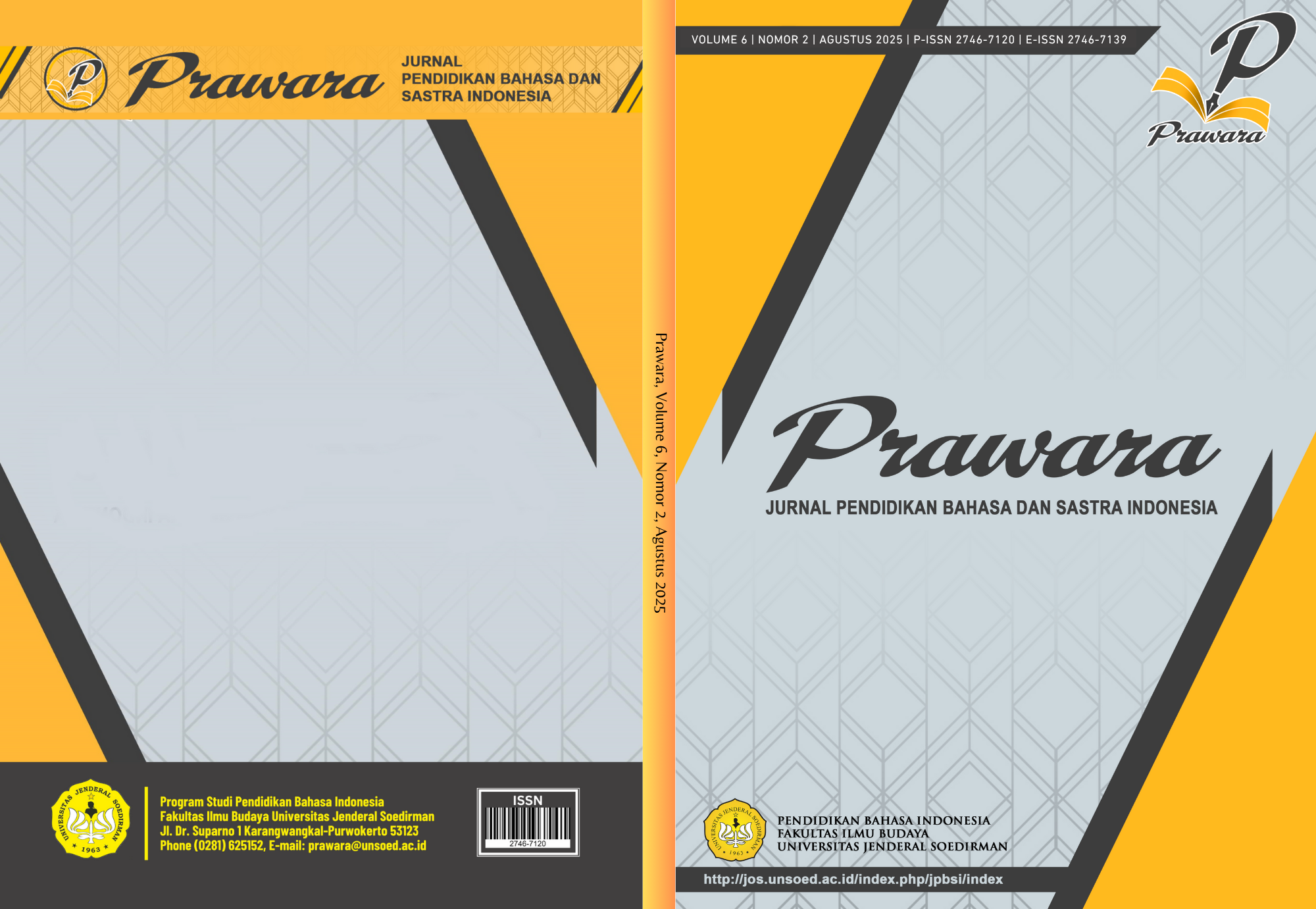Study of The Types Meaning of Demonstration Posters and Relevance as Dictate for Argumentative Texts
Abstract
Language functions not only as a means of communication but also as a persuasive and expressive tool capable of influencing people's mindsets and attitudes. One powerful manifestation of language utilization is in demonstration posters, which are often imbued with denotative and connotative meanings. This study aims to analyze these types of meanings in a demonstration poster titled "Dark Indonesia" that went viral on social media in February 2025. The approach used was qualitative with descriptive methods, where data from 15 posters were analyzed based on Abdul Chaer's semantic theory. The results showed that 10 posters contained connotative meanings, while the other 5 contained denotative ones. Connotative meanings tend to be used to convey social criticism emotionally and persuasively, while denotative meanings emphasize straightforward presentation of facts. These findings indicate that demonstration posters function not only as a medium for criticism but also have potential as contextual teaching materials in Indonesian language learning, particularly in writing argumentative texts in grade 11. Therefore, the results of this study are relevant in the form of teaching materials to improve students' critical thinking and argumentative skills through language analysis in real contexts.

This work is licensed under a Creative Commons Attribution 4.0 International License.
Authors who publish with Prawara: Jurnal Pendidikan Bahasa dan Sastra Indonesia agree to the following terms:
- Authors retain copyright and grant the journal right of first publication with the work simultaneously licensed under a Creative Commons Attribution License (CC BY) that allows others to share the work with an acknowledgment of the work's authorship and initial publication in this journal.
- Authors are able to enter into separate, additional contractual arrangements for the non-exclusive distribution of the journal's published version of the work (e.g., post it to an institutional repository or publish it in a book), with an acknowledgment of its initial publication in this journal.
- Authors are permitted and encouraged to post their work online (e.g., in institutional repositories or on their website) prior to and during the submission process, as it can lead to productive exchanges, as well as earlier and greater citation of published work.

This work is licensed under CC BY 4.0 .




.png)





 UNIVERSITAS JENDERAL SOEDIRMAN
UNIVERSITAS JENDERAL SOEDIRMAN
